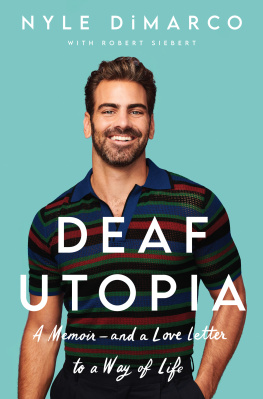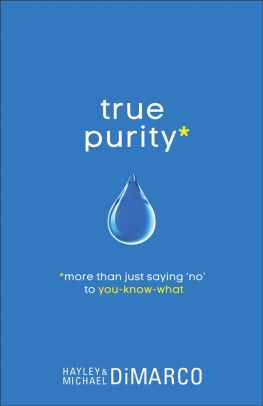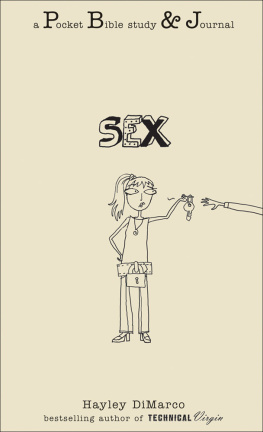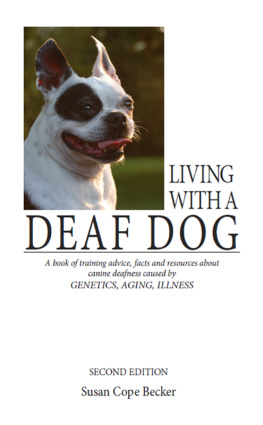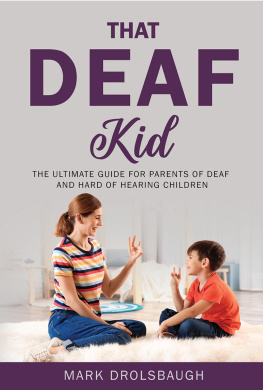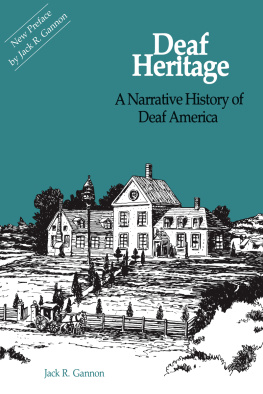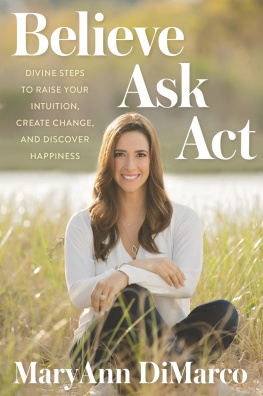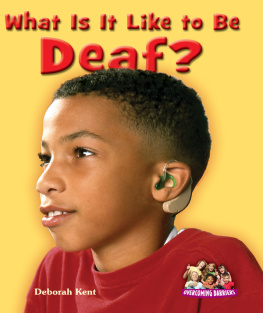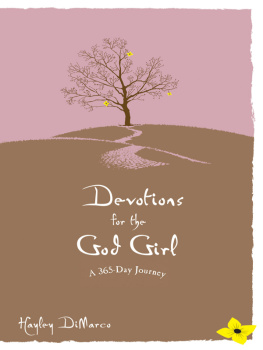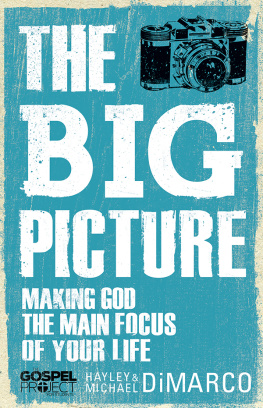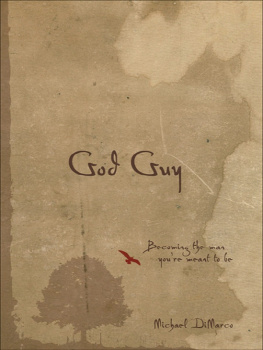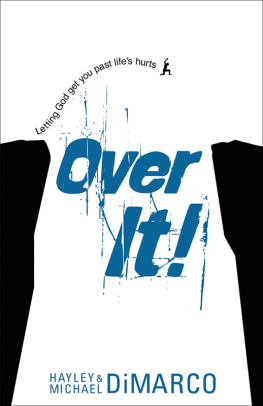Nyle DiMarco - Deaf Utopia
Here you can read online Nyle DiMarco - Deaf Utopia full text of the book (entire story) in english for free. Download pdf and epub, get meaning, cover and reviews about this ebook. year: 2022, publisher: HarperCollins, genre: Home and family. Description of the work, (preface) as well as reviews are available. Best literature library LitArk.com created for fans of good reading and offers a wide selection of genres:
Romance novel
Science fiction
Adventure
Detective
Science
History
Home and family
Prose
Art
Politics
Computer
Non-fiction
Religion
Business
Children
Humor
Choose a favorite category and find really read worthwhile books. Enjoy immersion in the world of imagination, feel the emotions of the characters or learn something new for yourself, make an fascinating discovery.
- Book:Deaf Utopia
- Author:
- Publisher:HarperCollins
- Genre:
- Year:2022
- Rating:5 / 5
- Favourites:Add to favourites
- Your mark:
- 100
- 1
- 2
- 3
- 4
- 5
Deaf Utopia: summary, description and annotation
We offer to read an annotation, description, summary or preface (depends on what the author of the book "Deaf Utopia" wrote himself). If you haven't found the necessary information about the book — write in the comments, we will try to find it.
Deaf Utopia — read online for free the complete book (whole text) full work
Below is the text of the book, divided by pages. System saving the place of the last page read, allows you to conveniently read the book "Deaf Utopia" online for free, without having to search again every time where you left off. Put a bookmark, and you can go to the page where you finished reading at any time.
Font size:
Interval:
Bookmark:
To my Deaf family,
and the flying hands that gave me wings
<0/
noun
a symbol signifying Deaf Power, an expression that embraces and promotes the history, languages, and values of Deaf communities all over the world.
Origin and History: The <0/ symbol is visually derived from the sign for Deaf Power, which is made with an open palm over an ear and the other hand forming a closed fist in the air. As both sign and symbol, <0/ is a bold declaration of profound and defiant pride in our culture and identity as Deaf people.
(Definition borrowed from Deaf American artist Christine Sun Kim and Deaf Australian designer Ravi Vasavan.)
THE DOCTOR ROLLED A MACHINE into the room and parked it at the foot of my moms bed, next to a pair of bassinets with stainless steel legs and transparent plastic cradles. Inside the bassinets were my brother Nico and me, both of us just a day old. The doctor unspooled wires from the machine and reached down into each bassinet to stick little felt-pad sensors on the sides of our heads, near our ears. He turned back to the machine, pressed a button, and heard a beepthe test had started.
Through the clear walls of the bassinets, my mom watched her babies with weary eyes. Nico, my ginger-haired twin, had emerged swiftly and without any issues. Mom and Dad cried and laughed as they saw the first of their twins, a baby with fair skin and hair so light you could barely see the strands in his brows. Mom couldnt celebrate for long, though, because I was still holed up far inside the womb, with no inclination to listen to my mothers pleading for me to come down and out into the world. Mom pushed and pushed, the clock ticked, the doctor and nurses began to worry. Dad clutched my moms hand and urged her on. Mustering up all her might from a depleted reserve of strength, my mom tried one final time to push me out.
But I would not budge.
The doctor put a stethoscope to my moms belly and listened close and his eyes suddenly darkened. Everybody out, he ordered, and the nurses ushered Dad away from the bed. Mom asked, Why, what was the matter?
The doctor started to speak, and Moms eyes moved to his lips.
The year was 1989. Hospitals werent required to provide American Sign Language interpreters to Deaf people who requested them. The Americans with Disabilities Act, the landmark legislation that required businesses and service providers in the United States to offer reasonable accommodations for people with disabilities, would not become law for another year.
Without an interpreter, my momhours deep into laborpaused her rhythmic breathing and pushing to wipe strands of her deep black hair out of her eyes and get a clearer view of the doctors mouth to read his lips.
The babys heartbeat, she read.
I had overstayed my time in Moms womb: my oxygen levels were critically low, and my heartbeat had slowed to a faint, weak rhythm. It was an emergency; my life was at stake before I had even tasted fresh air.
Mom watched as the doctor brought a surgical knife to her belly, and then a nurse put a clear mask over her face and everything went black.
Twenty-one minutes after Nico was born, the doctor pulled me out into the world.
Hours later, Mom woke, her mind still mushy and her vision cloudy from the anesthetic. She squinted, seeing three blurry fingers, then opened her eyes wide to bring Dad and my older brother, Neal, into view.
THREE BOYS, Dad signed.
NO GIRL? Mom asked, slightly forlorn.
NO. SECOND TWIN SAME FIRST, BOY.
The nurse brought in her two newborn babies. At first glance, we could not have looked any more different to Mom. Nico had milk-pale skin and straw-colored hair; I had olive skin and deep brown hair. As we lay side by side on Moms chest, the visual contrast between my twin brother and me was so extreme that Mom had to nudge the nurse.
These are mine? she mouthed.
Yes, the nurse reassured her. Theyre yours. She pointed toward the hospital bracelets on our tiny wrists, and back toward Moms. The information on the bracelets matched up.
Of course my mom had known that fraternal twins could look different from each other, but she wasnt expecting this. In almost every part of our physical appearance, we contrasted sharply. Nico was strawberry; I was chocolate.
With my dark hair and olive skin, I resembled my parents, older brother, and grandparents. It was a no-brainer that I was related to them. Nico, on the other hand, looked like nobody else in my family. If Nico hadnt been born my twin, there would have been strong suspicion that he was the milkmans baby. But hed shared the same womb as me, so there was no doubt about his lineage. And when you looked into our brilliant blue eyes you could begin to see our sibling resemblance. It was a trait we inherited from our dad and shared with our older brother.
Mom was exhausted and sweaty and still a little bit dizzy from the anesthetic, but she felt immense pride and joy holding her twins, one in each arm. Then a twinge of anxiety brushed at the edge of her consciousness: the doctors test. It didnt really matter to her what the results were. She would not forget how close she had come to losing one of her baby boys, so the most important partthe fact that we were alive and healthywas accounted for.
But one way or the other, my mom wanted us to have the same test result. Differing results could set her boys on paths far apart from each other, and she didnt want that.
The doctor removed the felt pad sensors from my little infant head and walked toward my mom, his hands clasped tightly behind his back. He took a deep breath and started moving his lips.
[Mumble] bilateral hearing [mumble mumble].
His hands rose to point at his ears.
[Mumble mumble] frequency [mumble mumble] failure.
Mom and Dad squinted at the doctors lips to try to understand what he was saying.
With a lifetime of practice, Mom and Dad had become decent lip-readers. They had to be; back then, they didnt have legally mandated access to ASL interpreters, so lip-reading was an indispensable tool in any Deaf persons communication survival kit. Its still used often by Deaf people today. In fact, when I meet hearing people for the first time, one of the most common questions I often get is Can you read lips?
Among the many options available to Deaf people when communicating with hearing peopleASL interpreters, pen and paper, using the Notes app on a phonemany Deaf people will tell you that lip-reading is nowhere near number one on their list. Even with all the practice in the world, lip-reading is notoriously unreliable. By some estimates the average lip-reader captures only around 30 percent of the speakers wordsand the odds are even worse with additional distractions. For instance, chewing gums a no-no. Missing teeth lead to missing words. And if the speaker has a bushy mustache? They might as well cover their lips; anything but a well-groomed mustache makes lip-reading near impossible.
The man who had delivered Nico and me was a great doctor, but he was a lip-readers nightmare. His lips moved as if they were stitched up, like Frankensteins monster. When he spoke, he looked like a ventriloquist speaking for his dummy. Without an ASL interpreter, my parents couldnt understand him.
Grab a pen and paper, my parents motioned.
The doctor flipped over some papers on his clipboard and scratched out: Your babies have hearing loss.
Mom pointed at her babies and mouthed, Both of them?
The doctor hesitated before nodding and wrote: They both display some level of hearing loss.
Font size:
Interval:
Bookmark:
Similar books «Deaf Utopia»
Look at similar books to Deaf Utopia. We have selected literature similar in name and meaning in the hope of providing readers with more options to find new, interesting, not yet read works.
Discussion, reviews of the book Deaf Utopia and just readers' own opinions. Leave your comments, write what you think about the work, its meaning or the main characters. Specify what exactly you liked and what you didn't like, and why you think so.

